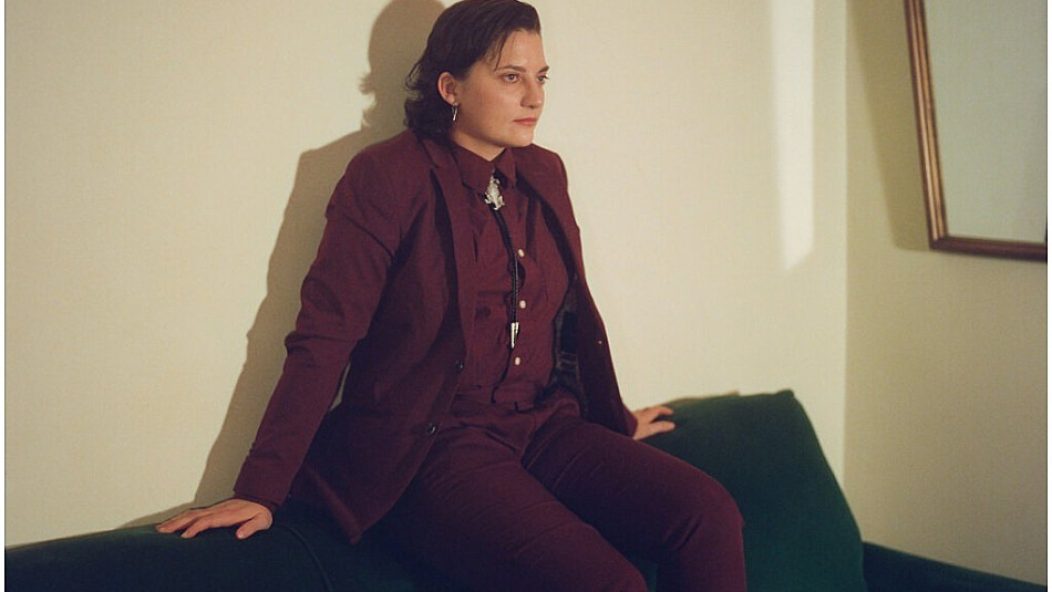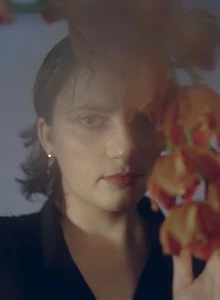
Rosie Tucker turned to nature for inspiration on 'Sucker Supreme'
Sucker Supreme aches with themes of growth and oozes with Rosie Tucker’s warm personality. Certainly the sometimes silly lyrics (“Wolfing down Doritos, lickin’ on my fingers/Anger on my tongue/Doritos in my anger!”) provide listeners with moments of lightheartedness while they maneuver through Tucker’s journey of self-discovery.
Tucker performs magic on Sucker Supreme as they put words into feelings that are hard to describe. It’s a multifaceted collection of emotions, complete with lyrics that are specific yet entirely relatable. The album forces listeners to look within to come to terms with their own complex emotions at the same time it compels them to laugh at themselves and their misfortunes.
Read more: Get Better Records is a label as well as a vibrant community for artists
When we speak, Tucker is in their Los Angeles home. “I woke up lazy,” they say, despite the fact that they’ve already practiced their morning writing session in their notebook, which is something between a diary and a songbook. “Sometimes it’s a song morning, and sometimes it’s just [a] whatever’s-in-my-head morning. I think the point is just to be returning to it. Sometimes it’s about what I’ve got to do that day. Sometimes it’s early memories, whatever,” they say.

Despite previously working with Jessy Reed in the post-rock band Gypsum, Tucker insisted on constructing their solo efforts before partnering creatively with Reed, Wolfy Sucks and Jess Kallen. “The pieces came together over a long time, and now it’s becoming something that feels solid and natural,” Tucker says.
What inspired you to become a musician?
I was always making up songs as a kid and dying to learn about different instruments and genres. When it came [time] to apply to colleges, I applied to one music school, and I got in, and so I went, “Fuck it” and decided to go. But I think there’s a lifelong love of music-making that has coincided with trying to do it for a career, but it lives independently and is going to persist regardless of where my career goes.
Who would you say you create music for?
I think that the impulse to create music is always for myself, and I think that’s really important. I think that’s how you create relatable music. Sometimes, if you keep the audience in mind, it can become too scary to be honest and to say that real stuff that, us as listeners, are looking for to relate to. I think a lot of good writing is about hearing something put into words that you had not heard put into words before, feelings that are either mysterious or have shame around them.
So I think that I am generally just trying to create an honest expression within myself first, and then some of those get transformed into works that I then bring to the band. And then maybe I show it to the management team and then to the label and then to the world. So there are these layers of intimacy that a song will move through before it reaches other people. But the audience is really, really important; a song is given its life by the people who listen to it. So in that way, whoever connects with it is the person I’m writing it for.
How has your writing and recording style changed from Lowlight to Sucker Supreme?
I think that the writing has stayed pretty consistent. It’s just something that I will do alone, and then I can bring the songs to my creative partners on the music. The first record was a document of these songs. On the next record, Never Not, the thought was, “How do I arrange these for a band?” And so I started to collaborate with other people, too.
For this last record, a lot of the same people were involved, so those creative partnerships really got to develop. Wolfy is an amazing producer and has also encouraged me to participate in the production in a more holistic way. So I played a lot more electric guitar on Sucker Supreme than I did on Never Not. I played a lot more synths. I tuned all my vocals… So I just had more of a hand in the sessions for this record. I think it is a small group of people who decided to try and level up while keeping things personal, you know?
You talk a lot about transformation, growth and the life cycle of a frog in your lyrics. What about those themes of evolution are so inspiring to you?
I think that nobody gets to escape change. We all have coping mechanisms that we develop as children to try and get through the world, and then you become an adult and you go, “Oh, that can’t work anymore. This is disrupting my life.” There’s so much that has to be learned and adjusted to growing up.
On the one hand, I think the inspiration of the frog life cycle is that this creature’s form fully changes, and we ourselves don’t get out of life without really changing. But also, it relates to a general sense of transformation that we all go through and a specific sense of reckoning with queerness and with transness and the process of coming out both to one’s self and to one’s loved ones. That’s some big life stuff. I’m just inspired by the fact that you don’t get to escape changing, and you don’t get to escape having difficult conversations and trying to have a better relationship [with] your life than you did 10 years ago.
I think quarantine really forced people to reconcile with their own queerness.
Absolutely. I’ve talked to other people, too, who are like, “Hi, we haven’t talked in 10 years. I’m queer now.” Just like I said with those coping devices, if you are someone who struggles with depression or substances or whatever, the ways that we comfort ourselves that might work or be functional when there are natural breaks in the day can break down when there are no breaks in the day. And then it’s like, “Oh, all I have is me.” So I have to figure out how to get healthy, take care of myself, get my needs met, whatever, in a way that I didn’t before.
You’ve talked about waiting to meet a better version of yourself. Do you think you’ve met that person since the album has dropped? Where are they?
They’re not coming. A big lesson of my quarantine is that I tend to disassociate from the things I’ve achieved. It feels like I’m a failure and somebody else did all of the cool things in my life. But me? I’m a failure. And that’s not true!
Part of my quarantine reckoning has been [realizing] everything cool I’ve ever done in my life has been through the efforts of the same person who sometimes I dislike. And again, that transformation is not coming. There’s no reward at the top. The reward is that once you figure out how to make peace with yourself, you’re at peace, and your life is easier.
Through this quarantine and afterward, after I had [the coronavirus], I have gotten back into eating healthy and exercising, which I just wasn’t before. And that’s coming from a very holistic place that is not image-oriented or weight-oriented. It’s about gratitude for the body that I’m in and feeling really, really good about being alive. So, I feel like the transformation is not coming. I think self-forgiveness is really important, too. And being able to be kind to yourself is a big part of unlocking those “better behaviors.” If you’re really hard on yourself, it’s really hard to get anything done. And when you’re really nice to yourself, everything is more manageable.
You can read this interview in issue 395, available here.







